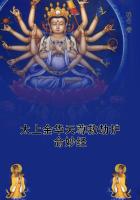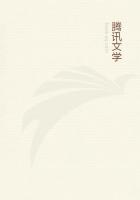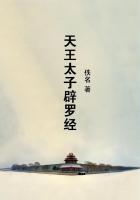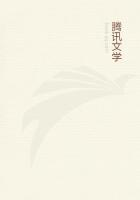That is true, I said; but still each of these sciences has a subject which is different from the science. I can show you that the art of computation has to do with odd and even numbers in their numerical relations to themselves and to each other. Is not that true?
Yes, he said.
And the odd and even numbers are not the same with the art of computation?
They are not.
The art of weighing, again, has to do with lighter and heavier; but the art of weighing is one thing, and the heavy and the light another. Do you admit that?
Yes.
Now, I want to know, what is that which is not wisdom, and of which wisdom is the science?
You are just falling into the old error, Socrates, he said. You come asking in what wisdom or temperance differs from the other sciences, and then you try to discover some respect in which they are alike; but they are not, for all the other sciences are of something else, and not of themselves; wisdom alone is a science of other sciences, and of itself.
And of this, as I believe, you are very well aware: and that you are only doing what you denied that you were doing just now, trying to refute me, instead of pursuing the argument.
And what if I am? How can you think that I have any other motive in refuting you but what I should have in examining into myself? which motive would be just a fear of my unconsciously fancying that I knew something of which I was ignorant. And at this moment I pursue the argument chiefly for my own sake, and perhaps in some degree also for the sake of my other friends. For is not the discovery of things as they truly are, a good common to all mankind?
Yes, certainly, Socrates, he said.
Then, I said, be cheerful, sweet sir, and give your opinion in answer to the question which I asked, never minding whether Critias or Socrates is the person refuted; attend only to the argument, and see what will come of the refutation.
I think that you are right, he replied; and I will do as you say.
Tell me, then, I said, what you mean to affirm about wisdom.
I mean to say that wisdom is the only science which is the science of itself as well as of the other sciences.
But the science of science, I said, will also be the science of the absence of science.
Very true, he said.
Then the wise or temperate man, and he only, will know himself, and be able to examine what he knows or does not know, and to see what others know and think that they know and do really know; and what they do not know, and fancy that they know, when they do not. No other person will be able to do this. And this is wisdom and temperance and self-knowledge--for a man to know what he knows, and what he does not know. That is your meaning?
Yes, he said.
Now then, I said, ****** an offering of the third or last argument to Zeus the Saviour, let us begin again, and ask, in the first place, whether it is or is not possible for a person to know that he knows and does not know what he knows and does not know; and in the second place, whether, if perfectly possible, such knowledge is of any use.
That is what we have to consider, he said.
And here, Critias, I said, I hope that you will find a way out of a difficulty into which I have got myself. Shall I tell you the nature of the difficulty?
By all means, he replied.
Does not what you have been saying, if true, amount to this: that there must be a single science which is wholly a science of itself and of other sciences, and that the same is also the science of the absence of science?
Yes.
But consider how monstrous this proposition is, my friend: in any parallel case, the impossibility will be transparent to you.
How is that? and in what cases do you mean?
In such cases as this: Suppose that there is a kind of vision which is not like ordinary vision, but a vision of itself and of other sorts of vision, and of the defect of them, which in seeing sees no colour, but only itself and other sorts of vision: Do you think that there is such a kind of vision?
Certainly not.
Or is there a kind of hearing which hears no sound at all, but only itself and other sorts of hearing, or the defects of them?
There is not.
Or take all the senses: can you imagine that there is any sense of itself and of other senses, but which is incapable of perceiving the objects of the senses?
I think not.
Could there be any desire which is not the desire of any pleasure, but of itself, and of all other desires?
Certainly not.
Or can you imagine a wish which wishes for no good, but only for itself and all other wishes?
I should answer, No.
Or would you say that there is a love which is not the love of beauty, but of itself and of other loves?
I should not.
Or did you ever know of a fear which fears itself or other fears, but has no object of fear?
I never did, he said.
Or of an opinion which is an opinion of itself and of other opinions, and which has no opinion on the subjects of opinion in general?
Certainly not.
But surely we are assuming a science of this kind, which, having no subject-matter, is a science of itself and of the other sciences?
Yes, that is what is affirmed.
But how strange is this, if it be indeed true: we must not however as yet absolutely deny the possibility of such a science; let us rather consider the matter.
You are quite right.
Well then, this science of which we are speaking is a science of something, and is of a nature to be a science of something?
Yes.
Just as that which is greater is of a nature to be greater than something else? (Socrates is intending to show that science differs from the object of science, as any other relative differs from the object of relation. But where there is comparison--greater, less, heavier, lighter, and the like--a relation to self as well as to other things involves an absolute contradiction; and in other cases, as in the case of the senses, is hardly conceivable. The use of the genitive after the comparative in Greek, (Greek), creates an unavoidable obscurity in the translation.)Yes.
Which is less, if the other is conceived to be greater?
To be sure.

